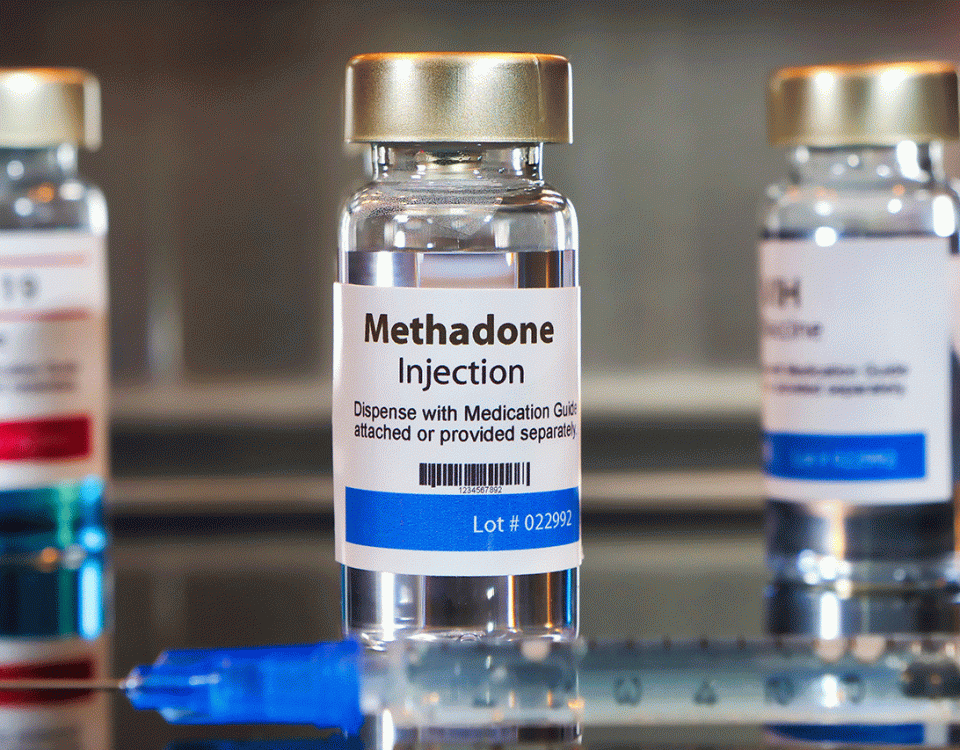Before answering if Percocet is addictive, what exactly is this drug? Percocet is a combination of oxycodone, an opioid, and acetaminophen, a pain medication. Acetaminophen, found in tylenol, is used to treat moderate pain, and the ingredients can be found in caffeine, aspirin, and other substances like codeine phosphate. With the help of this mixture, Percocet is used to treat moderate to severe pain. Unfortunately, like many drugs or medications, Percocet can cause dependency, and Percocet addiction is not uncommon.
Questions about our Facilities or Programs?
Our admissions coordinators are available 24/7 to answer any questions you may have as you consider whether treatment at Banyan is right for you or your loved one.
Why Is Percocet Addictive?
Percocet is addictive due to its ability to produce euphoria and relaxation, leading to a desire for more of the drug. For the alleviation of moderate to severe pain, the medication—which also contains acetaminophen and oxycodone—is recommended. Strong opioid oxycodone attaches to the brain's mu-Opioid receptors to block pain and to produce pleasure emotions. But when used in large doses or for a long time, this method of action can easily result in tolerance, dependence, and addiction.
People might require larger doses as their brains grow accustomed to the medication, which can result in an addictive loop where higher doses are needed to get the same results. Additionally, it can be challenging to stop usage because physical withdrawal symptoms like nausea, vomiting, diarrhea, and muscle aches can appear when a person stops using the drug.
It is also worth noting that the drug's widespread accessibility and excessive doctor prescriptions might contribute to addiction. Many people can receive the drug legally through medical channels, though some people might also do it illicitly. The medicine is in great demand and can be sold for a large profit on the open market.
What’s more, addiction may be more likely among persons with a history of substance misuse, mental health issues, or addiction in their families. These people may misuse the substance more frequently, which could result in addiction and other negative effects. In conclusion, Percocet is extremely addictive since it can cause euphoria and relaxation, has a brain-based mechanism of action, causes physical withdrawal symptoms, is widely available, and is frequently prescribed.
How to Tell if Someone is Addicted to Percocet
Signs of abuse are noticeable and may be easily observed if a person is constantly intoxicated. Behavioral changes are the first signs of addiction, where usually apathy and aggression are displayed.
Signs of Percocet abuse can include:
- Drowsiness
- Slurred speech
- Depressed mood
- Slow movements
- Impaired judgment
- Less social interaction
- Stops engaging in interests and activities
- Mood swings and cravings to use Percocet
A person who shows numerous signs, as mentioned above, should seek prescription pill addiction treatment at our Delaware drug rehab. The drug happens to frequently be misused since it’s easy for the body to become physically dependent on it. Before taking Percocet, make sure you tell your doctor if you are experiencing a present drug or alcohol addiction, kidney disease, breathing problems, or problems with your thyroid, pancreas, or gallbladder.
Side Effects of Taking Percocet
Do not take Percocet to relieve pain if you regularly drink alcohol or tend to depend on alcohol. Respiratory depression and other serious side effects can more easily occur due to this combination. To avoid memory loss, heart failure, and liver or kidney damage from mixing Percocet and alcohol, seek alcohol addiction treatment at our Delaware rehab center if you are worried about drinking alcohol while on medication.
Percocet addiction side effects include:
- Seizures
- Cold and clammy skin
- Problems with urination
- Unusual intrusive thoughts
- Vomiting or loss of appetite
- Slow heartbeat or weak pulse
- Problems breathing or slow breathing
- Fever, sweating, and hallucinations from high serotonin levels
Less severe and more common side effects include blurred vision, itching or red eyes, extreme emotional instability, and headaches. There are more common side effects, but this is not a complete list. Other drugs will affect Percocet’s symptoms, such as other opioids or drugs that a person is taking to help with sleep or insomnia.
Percocet overdose is also a possible risk of abuse. The more a person's tolerance to the drug grows, the higher a dose they'd need to experience a high. Over time, the person may hit a point when they take a dangerously high dose, which can lead to a possibly fatal overdose.
Getting into treatment is easy with our free insurance verification
"*" indicates required fields
Opioid Addiction Treatment at Our Delaware Rehab
At Banyan Treatment Center Delaware, our experienced medical staff specializes in safely getting you or a loved one through recovery. We offer exceptional levels of addiction care like medically monitored detox and a successful residential addiction treatment program. We understand addiction looks different for everyone, which is why we establish individualized treatment plans for each of our patients.
Contact a specialist to ask about our options for opioid addiction treatment and other substance abuse recovery programs. Call Banyan Delaware today at 888-280-4763, and don’t wait to get started!









